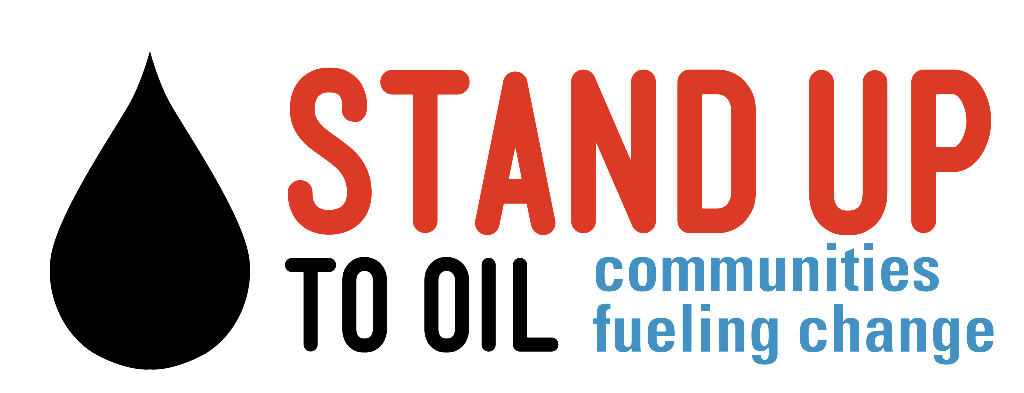 Tesoro Savage Oil Terminal (Vancouver, WA)
Tesoro Savage Oil Terminal (Vancouver, WA)
Tesoro Savage would have been the largest crude oil by rail terminal in the nation. With a capacity to handle 360,000 barrels per day, four trains daily would’ve been needed to deliver the oil and a tanker 700 feet in length for shipment down the Columbia River. Tesoro Savage could have dealt a major blow to Vancouver’s economy and quality of life, but people across the Northwest stood up and said no. Learn more about this project here.
NuStar Energy (Vancouver, WA)
NuStar Energy currently operates a bulk terminal at the Port of Vancouver on the Columbia River. The company proposed to retrofit their facility to become an oil-by-rail terminal. NuStar Energy wanted to receive an average of 22,000 barrels of crude oil per day. The company submitted its proposal to the City of Vancouver days before the City passed a moratorium on any new crude oil projects. Since the company had proposed to retrofit their existing facility, there were relatively few permits required.
Westway Terminal Company (Grays Harbor, WA)
Westway currently operates a bulk terminal at the Port of Grays Harbor, and proposed a retrofit to receive 48,918 barrels of crude per day from oil train shipments. Since the company had proposed to retrofit their existing facility, there were relatively few permits required. The Washington Supreme Court breathed life into the Ocean Resources Management Act (ORMA), a state law that protects coastal ocean resources, and ruled that the law’s strict permitting requirements apply to crude oil shipping terminals. The ruling will effectively block a proposed crude-by-rail terminal in Hoquiam.
Imperium Renewables/Renewable Energy Group (Grays Harbor, WA)
This biodiesel facility planned to retrofit its facility at the Port of Grays Harbor to receive crude oil during the height of early 2010s oil price spikes. But in early 2016, REG purchased the assets of Imperium and, after hearing the concerns of local community groups and the Quinault Nation, announced that their future plans would not include crude oil. REG has expressed interest in expanding their facility but their plans are still unknown. We are currently awaiting more clarity from REG and remain vigilant to ensure that a crude oil terminal is not located on the outer coast.
U.S. Development Group (Grays Harbor, WA)
In 2012, US Development proposed building a new oil-by-rail terminal that would have received 45,000 barrels of crude per day in Grays Harbor, the same area as the REG and Westway projects. Their proposal put the facility across the water from a National Wildlife Refuge and the project’s permit applications weren’t even discovered until after a public records request. The project was unanimously opposed by the nearby Aberdeen City Council and numerous community led organizations. In April 2016, the company opted out of its lease agreement with the port, quietly ending its bid to ship crude oil across Washington and through the state’s coastal waters.
Learn more about how Grays Harbor is saying no to oil – and what you can do to help.
Shell Oil (Anacortes, WA)
Shell Puget Sound Refinery announced in 2016 that it would drop its plans to construct a crude-by-rail facility in Anacortes. Originally proposed in 2014, community opposition and legal challenges forced Shell and Skagit County to undertake a full environmental and public health review under the State Environmental Policy Act. That delay, growing local and regional opposition, and uncertain economics contributed to Shell’s decision. Read more from the press release.
